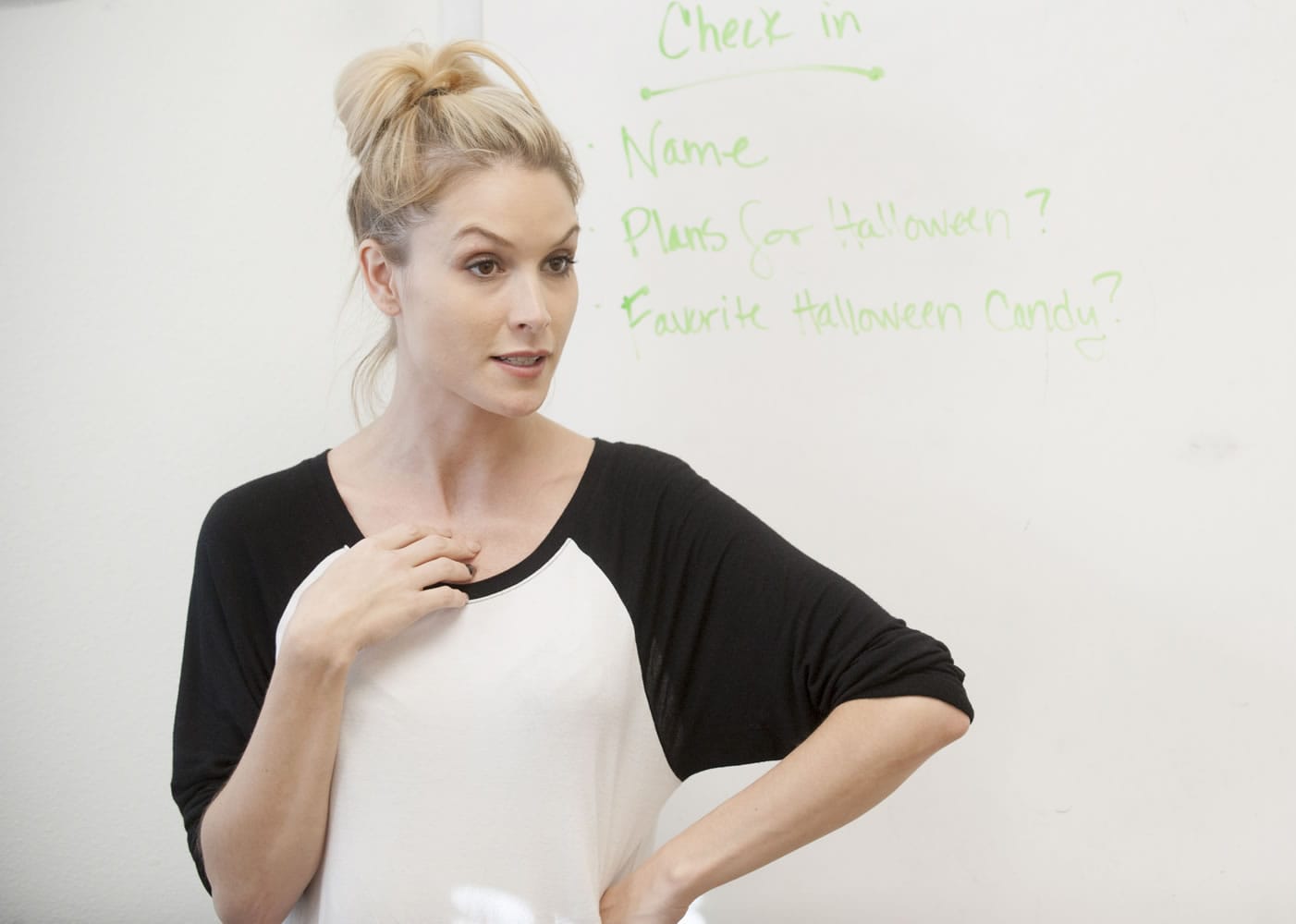After Tara Conner talked with children at Daybreak Youth Services about their addiction struggles, the 29-year-old went back to her hotel room and cried for an hour. Then, she did some writing and prayed.
She knows the strife those teens are dealing with. If you Google Tara Conner — as many of the kids at Daybreak did after hearing she was going to visit — you’ll find out that she is a recovering drug addict and that she almost lost her Miss USA crown in 2006 after testing positive for cocaine. She’s been sober almost nine years, thanks to treatment programs and support.
On Monday, Conner talked with patients at Daybreak Youth Services, a statewide alcohol and drug treatment program with facilities in Vancouver. She also spoke at the Heathman Lodge on Tuesday as part of a fundraising luncheon for the nonprofit. Daybreak’s executive director Annette Klinefelter and Conner each sat on an armchair, rather than behind a podium, while talking about recovery. The thought behind the setup was to create a conversation as opposed to talking at people.
Being talked at, Conner found, isn’t particularly helpful. When she was a kid, speakers at D.A.R.E. assemblies told her that doing drugs is illegal and it would fry her brain like an egg (which she thought sounded cool). Corrections offers told her not to do bad things because that would get her into trouble — information that went in one ear and out the other. She started using substances at 14.
The message children often get is “you can’t” and “you shouldn’t.” When Conner visits children, she tells them you can experiment with doing drugs, but doing so is like “playing Russian roulette with your life.”
Those who have the genetic proclivity may find themselves going down the ugly spiral of addiction.
Youth may self-medicate to deal with an unsafe home environment. Adverse childhood experiences, known as ACEs, can increase the chances youth will turn to substances for survival, Klinefelter said.
“I had a child ask me to adopt her yesterday,” Conner said. It broke her heart to hear that, because Conner knows her home life must be awful.
During her childhood, Conner dealt with abuse and her parents’ divorcing, along with alcoholism and mental health issues that ran in the family. The family’s problems were kept quiet.
“I had a shame muzzle put on me as early as I can remember,” Conner said.
Klinefelter and Conner stressed that addiction is a chronic illness, not a choice. They both agreed that more needs to be done for young addicts. Currently, Daybreak has a 16-bed facility off of Falk Road in Vancouver where boys are treated for chemical dependency. Plans are in the works to increase the number of beds for girls and open another facility in Clark County.
Klinefelter would like to increase bed space to a point where the waiting list for treatment — which can be 50 or 60 kids deep — is empty. Intervening and preventing children from becoming adult addicts saves money down the road, she said.
Conner said that children recovering from addiction need a safe place to talk about what is going on without being judged, have peer support and long-term resources, so they can lead healthy, productive lives. It’s also important for addicts to meet and relate to recovering addicts, Conner said.
“That’s what they need,” she said. “They just need love.”
When the event ended, Conner made a beeline for a table at the back of the room where there was a handful of Daybreak clients. They were the few kids in a room full of policymaking adults, including city councilors and senators. They talked with Conner and took pictures with her. Despite the age gap, Conner said she relates to them the best.
“They’re why I do what I do,” she said.
Counselor program at risk
Members of the audience asked Conner and Klinefelter questions and offered ways to support recovery in Clark County.
James Jensen said the addiction counselor education program at Clark College needs to be saved to ensure a future supply of local recovery counselors. The college is considering eliminating the department as part of $2.6 million in proposed cuts. Jensen is an adviser and professor, and he’s temporarily the interim head of the department.
Annually, about 180 students earn certification or an associate’s of applied science in the speciality, Jensen said. That number increases to about 260 if you consider students taking the classes to fulfill requirements for a transfer degree, he said.
The college’s goal was to cut $2 million from academic programs, so there’s a cushion of $600,000 to possibly save the program, Jensen said.
Over the next couple of days, Jensen aims to gather information and feedback from people disputing the rationale for cutting the program. Administrators are still finalizing the budget.




